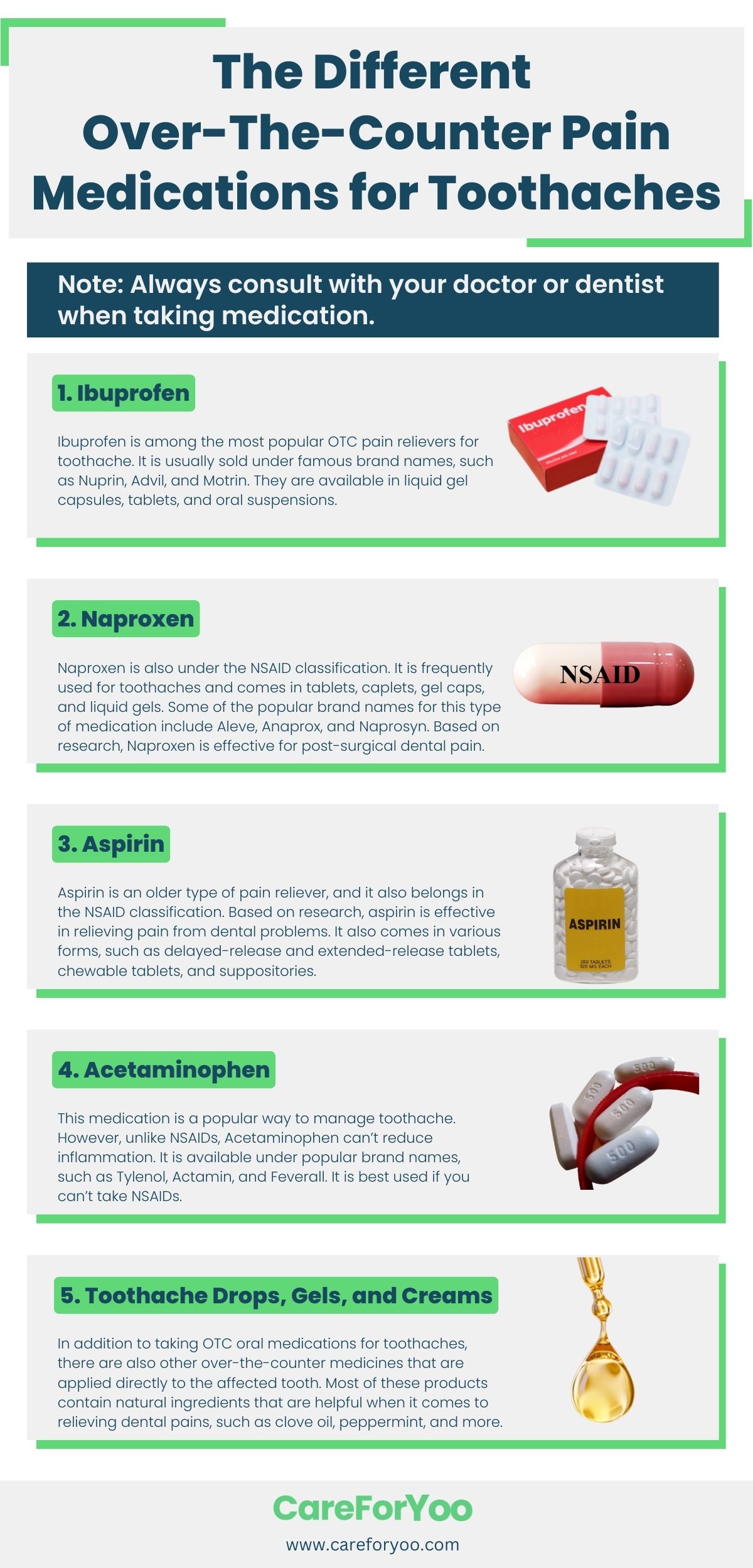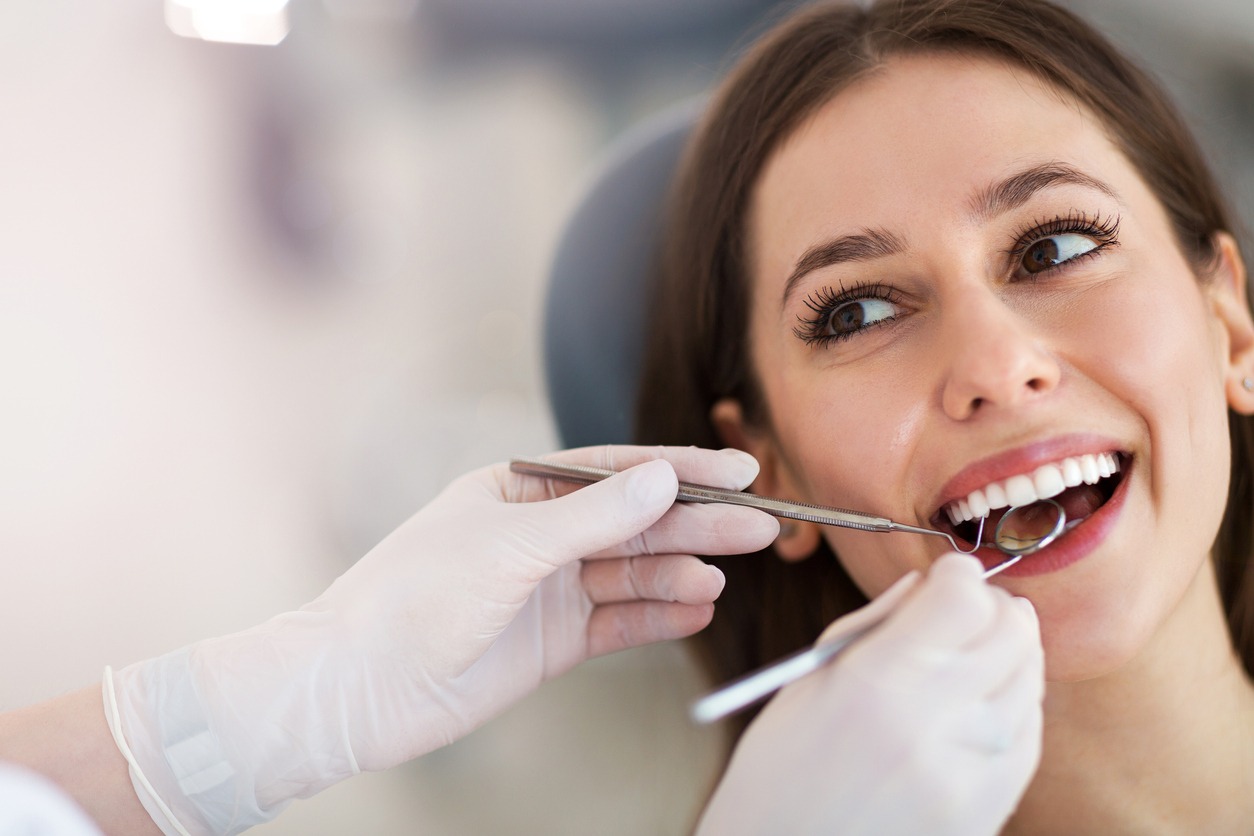Whenever you have a trip ahead of you, you typically prepare your itineraries, things to pack, and your accommodation for when you get there. You may fill an emergency kit for first aid and some meds. But when you develop a toothache or a cracked tooth while in a foreign land – will you be prepared? What should you do when that happens?
While you can never thoroughly plan for all of life’s emergencies – it’s wise to take the time to consider what you should do if you or any of your loved ones would suffer from a dental emergency while traveling. Read on to learn how to manage dental issues while traveling, how you can avoid them, and everything else you may need to know.
Signs That You Need Emergency Dental Care
A dental emergency while traveling is painful and scary, but emergency dental care can offer relief or even save your tooth. Here are the signs you need emergency dental care:
- You feel sudden, excruciating pain that keeps you from doing anything else and enjoying your trip
- You chip or fracture your tooth
- Your tooth or multiple teeth fall out
- Your tooth or teeth gets dislodged or loose
- Your crown or filling is lost or damaged
- Your gums, palate, or mouth is injured through trauma or impact
- Your gums or mouth starts to swell
- Any other sudden, tooth-related problems or any new pain in the gums or mouth
The appropriate response varies depending on the severity of the condition.
Dealing with Dental Issues While Traveling
Here are some of the dental issues you may encounter while traveling and what you can do to deal with them:
Toothache
Tooth pain is common among travelers when flying due to the changes and imbalances in the air pressure on the plane. You can especially feel it if there are pre-existing cracks, cavities, or spaces in fillings. Sometimes, the cracks or cavities within the toot amplify the pain when the air enters the room and responds to the air pressure changes. However, this type of discomfort usually subsides after landing.
But if the pain persists, rinse your mouth and floss to dislodge anything that may be stuck on your teeth. Take over-the-counter pain meds to help alleviate the pain. If the ache continues, seeing a local dentist while traveling may be necessary.
If you wake up with a toothache, first try flossing and rinsing your mouth with warm salt water. If the pain persists, take over-the-counter pain medication and seek out a local dentist if necessary.
Never place aspirin directly on the tooth, as it can cause burns on the gum tissue. Contact a local emergency dentist if the pain persists or worsens.
Here are some over-the-counter pain medications you can take while on the go:
Broken or cracked tooth
Engaging in activities such as sports, skiing, surfing, bicycling, or climbing increases your risk of accidents that may cause broken teeth while traveling. A broken or cracked tooth is a severe dental emergency that requires immediate attention. In case this happens, rinse your mouth and apply a cold compress to control swelling. Seek out an emergency dentist or hospital emergency room without delay.
If you break or crack a tooth, gather any pieces, rinse your mouth, and apply a cold compress to the outside of your cheek to reduce swelling. It is important to find a dentist or emergency room for prompt treatment.
Knocked-out tooth
In case of a knocked-out, broken, cracked, or chipped tooth, it’s vital to seek immediate emergency care. If you can’t see an emergency dentist, visit a hospital emergency room. While waiting for treatment, gather all tooth fragments, and avoid cleaning or scrubbing them. Hold the tooth by the crown and gently rinse it with water, then try to reinsert it into the socket. If that’s not possible, store it in milk or hold it in your mouth. Make sure to seek treatment within the hour to increase the chances of saving the tooth. In the meantime, apply a cold compress to reduce swelling.
Dislodged or lost tooth
Losing a tooth can be a scary experience, especially while traveling. It is essential to seek immediate attention if you lose a tooth, as a dentist may be able to replace it if you act quickly. Here are the steps to follow if you lose a tooth:
- Try to locate the tooth so that a dentist may replace it.
- Rinse the tooth with cool water, but be gentle to avoid damaging the root.
- Place the tooth gently back into the socket without disturbing the root area if possible. Do not force the tooth or damage the delicate root.
- If you cannot easily place the tooth in the socket, store it in a glass of milk, an approved tooth preservation product, or between your gums and cheek, as The American Dental Association recommends.
- Go to an emergency dentist immediately.
It is important to note that the chances of a dentist being able to save your natural tooth decrease significantly after 30 minutes, so it is wise to research emergency dental care before your trip.
If your tooth is dislodged entirely, follow these steps:
- Hold the tooth by the crown.
- Rinse the root if it’s dirty, but be careful not to touch the tissue fragments or place them in a cloth.
- Hold the tooth in the socket if possible, or transport it in a cup and see a dentist immediately.
Quick response is crucial, as the likelihood of saving the tooth decreases after about 30 minutes.
Swollen jaw
Swelling of the jaw caused by a dental abscess can quickly worsen, especially if accompanied by fever or flu-like symptoms. Immediate attention is necessary in this case. Look for a dentist nearby, or visit a walk-in clinic or urgent care. If all else fails, go to the emergency room. Antibiotics may be prescribed to prevent the infection from spreading. It’s important not to delay seeking treatment for any dental emergency during travel. Contact our office and schedule an appointment as soon as possible after returning. Don’t let a temporary issue become permanent; any tooth pain that persists despite flossing, a broken filling, or a dental infection requires attention.
Broken filling
Breaking a filling might require little attention. First, examine the tooth and check if any pieces are loose or causing pain to your gums. If not, you can go to the nearest pharmacy and buy temporary filling material to patch up the tooth. Remember that this material is only a temporary fix and will only last a few days. Make sure to schedule an appointment with your dentist once you return home, and consider getting the filling replaced if you’ll be away for an extended period.
Lost crown or filling
In case you lose a filling or crown, there are a few things you can do to temporarily fix the issue. If you lose a filling, you can place over-the-counter dental cement or chewed sugarless gum in the cavity. If your crown comes off, try to slip it back over the tooth and use temporary dental cement, toothpaste, or denture adhesive to hold it in place. However, it’s essential to see a dentist as soon as possible. If emergency dental assistance is not available where you are, contact your regular dentist as soon as you get back home.
How to Prevent Having Dental Emergencies While Traveling
One of the best ways to prevent toothaches and other kinds of dental emergencies is to maintain proper hygiene while traveling. Here are some ways how you can avoid having dental emergencies when traveling.
Maintain basic dental hygiene.
Travel is the time to relax and let go a bit, but you should never forego brushing and flossing. Even if you stop doing these for as little as three to four days, plaque can thicken, and gingivitis can start setting in. Most people can prevent having common dental issues simply by brushing and flossing their teeth regularly. The great thing about toothbrushes, toothpaste, and floss is that they take up only a little luggage space and come with complimentary toiletries in hotels.
Stay hydrated
Besides regular flossing and brushing, staying hydrated is also important. Drinking water prevents dry mouth, which leads to gum disease, teeth staining, and tooth decay.
Visit your dentist before your trip
To avoid dental issues during your trip, getting a checkup before you leave is essential, especially if you have existing dental concerns. If you have a history of gum disease or cavities, make sure to schedule a cleaning and inform your dentist about your travel plans. This way, they can check for potential problems and offer advice on maintaining good oral health while abroad. It’s also a good idea to complete any necessary dental work, such as a root canal or filling, before your trip. Doing so can minimize the risk of experiencing an unexpected dental emergency while away from home.
Get dental insurance
To ensure your dental needs are covered during your travels, reviewing your insurance plan and checking if it provides coverage abroad is important. If not, consider obtaining a temporary dental plan to provide additional coverage during your trip. Additionally, research emergency dental and medical facilities in each city you plan to visit and keep their contact information on hand. Remember to bring copies of your insurance details as well.
Pack supplies
Make sure to pack the necessary items for your dental care while traveling. Bring over-the-counter pain relievers like ibuprofen if you are prone to dental issues and oral hygiene products such as toothpaste, floss, and a toothbrush. Additionally, include mouthwash to maintain good oral health. Being prepared with these items can help you care for your teeth while away from your dentist.
Watch your diet
Be mindful of your oral habits while traveling to reduce the risk of a dental emergency. Avoid eating hard candies or other hard foods that may cause damage to your teeth. If you suffer from sensitivity, refrain from consuming acidic beverages like coffee or tea, which may worsen the issue and lead to a dental emergency abroad.
Minimize your chance of injuring your teeth or jaw.
While you cannot fully avoid having dental problems, there are ways to minimize your chance of injuring your teeth or jaw while traveling:
- Avoid chewing or biting down on hard foods that might crack, chip, or damage your teeth. If you are prone to teeth cracks or have lost a tooth while doing so in the past, it’s best to avoid them on travels to prevent it from happening again.
- Wear a protective mouth guard when playing contact sports or participating in activities that may have a risk of falls or trauma.
- Be extra careful when engaging in contact sports or other active sports like winter skiing, especially when a dentist is not around.
- This may sound funny, but it can cause dental problems: don’t open a beer with your teeth to impress a barmaid at a foreign pub, and avoid doing or saying something that could get you a fist to the face.
How to Find a Dentist Away from Home
Experiencing a dental emergency can be stressful when you’re away from home. However, with a bit of preparation, you can ensure prompt dental care.
Finding a dentist who meets American standards should be easy if you’re traveling within Europe or Canada. You can ask your hotel concierge for recommendations or contact your travel insurance provider for a referral to a dentist who will accept your coverage.
To be extra prepared, research emergency dental options online before you travel, and save any relevant information on your phone. This can include reviews of emergency dentists that may help you choose the right one. It’s also essential to understand the medical and dental systems of the country you’re traveling to by consulting travel advisories and guides.
After you’ve received emergency dental care, make sure to follow up with your primary dentist once you’re back home. Your emergency dentist may provide temporary relief while waiting for a more permanent treatment.
Conclusion
You don’t want to experience a dental emergency, especially while traveling. But with some basic dental care, initiative, and planning, you can ensure your teeth are in good condition and know how to respond should an emergency strike.




